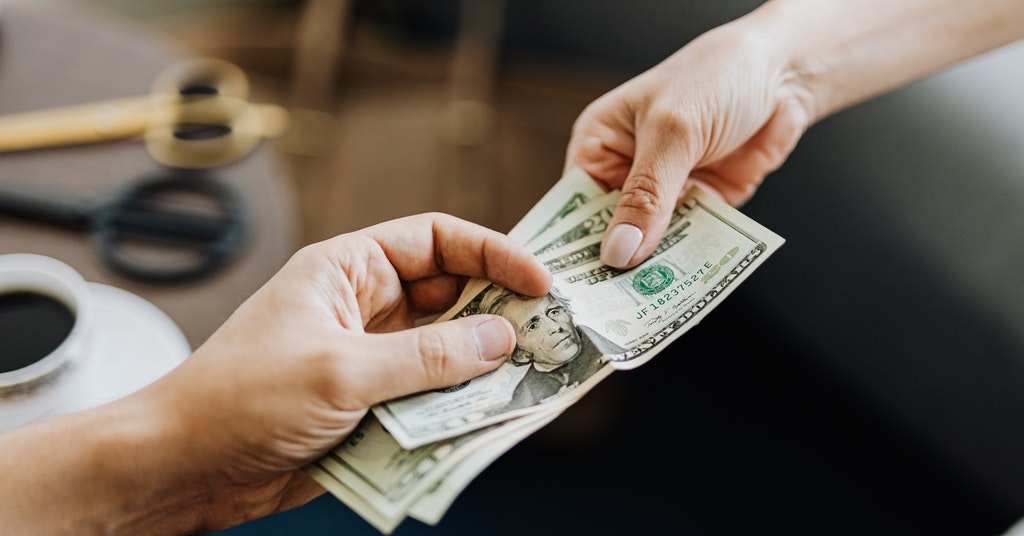The average person receives tons of assorted messages and a dozen phone calls each day. Although most of these are legitimate, even one very convincing fraudster getting in contact with you may cause lots of harm

How to identify a scammer? Source: pexels.com
There are millions of possible ways to trick you out of money and personal details. In 2019, US citizens reported losing over $667 million to imposters. Those pretended to call from government institutions, be a representative of a well-known business, have a romantic interest, or call on behalf of a family member with an emergency.
It may seem that most scam types are well-known and suspicious. Both government agencies and individuals raise awareness about frauds you may encounter with all possible means. At the same time, scammers use vulnerabilities of human psychology to make victims drop their guard. Almost 10% of Australians who reported a scam in 2021 found it plausible and bore financial losses.
In times when a number of scams is skyrocketing, it’s crucial to remind you of the basic rules helping to identify a scammer.
1. They catch you off-guard
Scammers often call at the time of day when people are not inclined to use their critical thinking. The wee hours of the morning and late at night are the most popular periods for “emergency calls”. When a sleepy person hears that a relative is in trouble, panic often outweighs logical reasoning. The middle of the business day is good for different types of scams. Fraudulent business offers, promotions, bonuses credited to your account, approved credit lines, and more information can be quickly declared to you in a robocall requiring additional actions. When people are in a crowded place like an office or a shopping mall, blurred caller details don’t seem that suspicious. Busy call recipients may attribute unclear words to noise and concentrate on a “lucrative offer”.
2. It’s unexpected
It may be logical for a bank representative to contact you after a few unsuccessful payment attempts. Shop assistants may address their customers after a confirmed purchase transaction to get feedback. There are other examples when you may expect a call or message from an unknown phone number. However, most scammers contact you out of the blue. For instance, you receive congratulations on winning a contest you have never participated in. Or else, you’ve been approved for a credit you’ve never applied for in the first place. They may also claim a package you are not waiting for is awaiting collection. When scammers impersonate a business or an institution you’re familiar with, they may use a different channel than legal representatives have used before to address you.
3. You feel pressured
When scammers call you, they want to create the effect of urgency. They need your immediate response, since if you take time to think about it or consult with someone, you may figure out the scheme. Thus, they use different persuasive tactics to create a feeling of excitement, fear, or anxiety. They might tell you not to hang up so you can’t check out their story. They might threaten you in multiple ways, depending on the context of the fraud. They can make time-sensitive claims to increase your motivation to decide on the offer right away. They might also claim if you reject the offer now, the prize will go to another “winner”.
4. Personal and banking data is involved
Be especially vigilant when somebody asks you for sensitive information (bank account number, CVV code, address, full name, etc). It’s unusual for the bank or government agents, or business representatives to ask you for such sensitive details. Hence, if your conversation with a company representative heads in this direction, hang up, or stop responding to messages. Initiate the dialogue yourself using official company contacts that you may find on the back of your credit/loyalty card, at the official website or app. Ask to confirm the information you’ve got from the suspicious caller, mail, or message. In most cases, it turns out to be fake.
5. They ask for advance payments
The ultimate goal of scammers is to get money. Thus, they often convince you to pay an upfront fee in order to receive a prize, service or high-value goods. You may be asked to pay a fee for training programmes, fast loan insurance, package shipping, or background job checks. Often such upfront payments require using an alternate method such as a wire or bank transfer, gift cards, reloadable card, or cryptocurrency. Those methods are pretty untraceable. You may be told that the fee is refundable and will be used as a deposit or an administrative charge.
6. Vague details
Scammers do not really know you as your bank or brand representatives may do. Hence, they may use an impersonal greeting. Scammers may introduce themselves using common names like John Smith. Besides, they often very vaguely describe which company they represent. Scam websites and emails have vague contacts like PO box numbers, premium rate phone numbers, non-existent addresses, etc. Some of them don’t have signatures and contact information at all. Premium-rate telephone numbers are also a major source of money loss. They are used for telephone calls during which certain services are provided. They incur prices higher than normal and may drain you of all mobile account funds. In the UK, premium-rate numbers include 118, 0870, 0871, 0872, 0873, 070, and 09 numbers. In the US, numbers starting with 1-900 are rated as premium.
7. Your new acquaintance is in trouble
Social media gives plenty of opportunities to scam people after befriending them. Often scammers pretend to have a romantic interest in you, but quite soon they start to reveal their tragic stories leading to financial requests. They may tell you they are about to be deported or evicted, they have lost their job or been ill, or else, they need your help with their new struggling business. In those cases, scammers will ask you either to send them money or transfer money/goods on their behalf. Beware, as you may become part of a money-laundering scheme which is a criminal offence. Some new media contacts may approach you with the money request right away. Those are usually disguised as some kind of charity: raising money for medical treatment, helping the military, homeless, immigrants, or even planting trees for a sustainable future. Some scammers try to trick you into paying them by thanking you for a donation that you never made. You may get interested enough to click on the suspicious link.
8. Too good to be true
The main rule of thumb for frauds and scams is: when it sounds too good to be true, it usually is. Fantastic offers, unexpected prizes, big gains for minimal effort, guaranteed success with your investments or loans, and even that gorgeous new Facebook friend who’s in love with you at first sight – if it seems too exciting, let your inner skeptic check the story more carefully.
9. It doesn’t feel right
Sometimes, even when everything seems legit and you don’t spot obvious scam signs, it just doesn’t seem right. You may call it intuition, but your mental alert may be triggered by tiny red flags on a subconscious level. Poor grammar or punctuation in an official mail, different logo details, wrong coloring of the familiar website, strange accent in a caller with a local phone ID. Whatever it is, don’t act before you analyse it better.
10. Swaying from accepted rules
If you deal with P2P shopping platforms or any e-commerce services, be careful of buyers or sellers offering inappropriate payment and communication alternatives. For instance, they may want to conduct a transaction via wire transfer instead of the in-built checkout solution. They prefer to communicate using personal messengers rather than the platform’s messaging system. The concept is applicable not only for shopping cases. It’s strange when tech support asks for remote access to your computer to show you how to fix something, or when a bank employee asks for your account credentials. There are standard procedures and if they’re violated you must be dealing with a scammer.
SEE ALSO:









